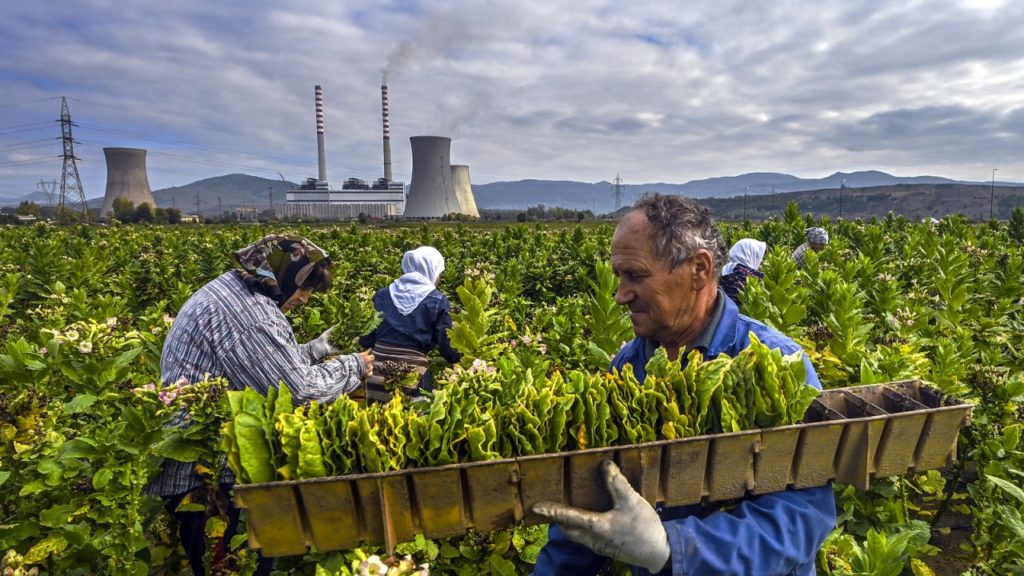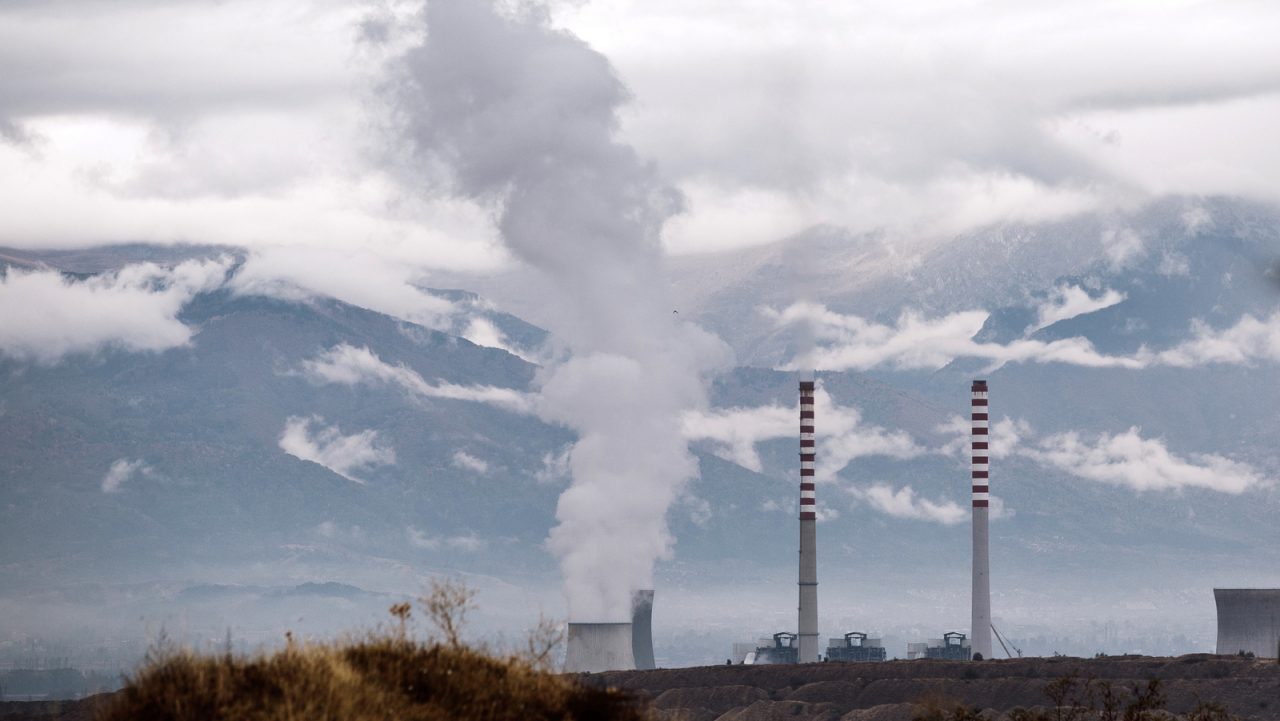The REK Bitola mining and energy complex in North Macedonia is one of Europe’s most lethal polluters – but, despite local protests, and clear evidence of its harm, the authorities have yet to act.
Forty years have passed since the first unit of the Bitola coal-fired power plant was put into operation in what is now North Macedonia.
One of two such plants in the country, they have provided 50 to 70 per cent of its electricity production over these years.
But, alongside generating electricity, the Bitola power plant has also been generating air pollution on a scale rarely seen in Europe.
Evidence of the detrimental impact of the dirty air on the environment and public health has been piling up for a decade.
The latest analysis, compiled by Bankwatch, released this week, shows that fine dust, PM2.5, concentrations alone are responsible for up to 8.43 per cent of all deaths among adults in the nearby village of Novaci.
This means that in this small, sparsely populated municipality, up to 6 people die prematurely every year due to PM2.5 pollution.
Dust and sulphur dioxide emissions from the power plant are consistently higher than emissions’ legal limits.
In the past few years, the plant has frequently been ranked among Europe’s top five emitters of pollutants.
In addition, coal ash, a by-product of the electricity production process, is deposited in the open near the plant, and was found to contain heavy metals whose radioactive levels also exceed allowed limits.
Locals have voiced concern many times. In 2014 and 2015, the town of Bitola saw thousands of protesters taking to the streets to demand cleaner air.
NGOs working on health issues publish alarming figures about the number of pollution-related diseases in the region, and citizens and businesses are coming together to install air-quality sensors.
The findings of the latest report are based on Bankwatch’s own measurements over nine months in 2021, and the data confirm that the coal power plant, the ash disposal site and the open-cast lignite mine, which are all operating without environmental permits of any kind, are the main sources of air pollution.
Worryingly, few days went by during the whole monitoring period when the pollution did not exceed the World Health Organisation’s recommended limits for ambient air quality.
In other words, people in Novaci are exposed to dangerous levels of air pollution throughout most of the year.
Novaci is not an isolated case. Almost all countries in the Western Balkans face the same issue of coal power plants poisoning the air.
The report “Comply or Close”, released by Bankwatch and CREA in September 2021, revealed that the addiction to coal in the Western Balkans was responsible for nearly 19,000 premature deaths in the region and beyond.

All five Western Balkan countries that have coal power plants are under infringement procedures initiated by the Energy Community Secretariat for not complying with emission limits.
Yet, in spite of this dire situation, governments in the region have done little even to monitor air quality and provide regular and real-time information to citizens in the coal regions, let alone implement measures that would bring down levels of pollution.
The time for coal-generated electricity is over. In its latest energy strategy, North Macedonia’s government set 2027 as the date for a coal phase-out – but this ambition needs to be translated into action.
Planning for a transition for the Bitola region is long overdue, and investments in energy transformation can no longer be delayed.
If the country is to follow its own government strategy, all these processes have to speed up.
Meanwhile, it is unacceptable for the authorities to avoid investing in pollution control for the REK Bitola mining and energy complex until it is closed.
Five more years – at least – of constantly living in an environment as polluted as Novaci’s will cost many more lives.
Davor Pehchevski is a Balkan Air Pollution Campaign Coordinator at CEE Bankwatch Network.
The opinions expressed are those of the author and do not necessarily reflect the views of BIRN.




